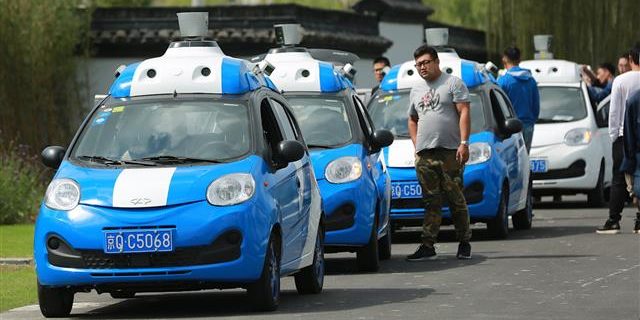Self-driving cars need high-quality digital maps to function properly. They not only use digital maps to find their general location, but also in some cases to locate landmarks that aid maneuvering in low-viability situations, or when a GPS link isn’t available. Consequently, accruing map data has become a major priority for automakers and tech companies. But the world’s largest new-car market is throwing up a major roadblock to these efforts.
The Chinese government is blocking foreign companies from mapping its roads in great detail, according to a Financial Times report. The restrictions, which reportedly do not apply to Chinese firms, are being instituted in the name of national security. China is concerned about spying.
China has restricted the recording of geographic information for more than a decade because it believes giving other countries access to that information constitutes a security risk. Geographic surveys can’t be performed without permission from the government, and many digital cameras don’t record GPS coordinates for geotagging, as they do in other countries, according to Fortune.
The restrictions on mapping mean foreign companies looking to sell or operate self-driving cars in China may have to partner with local firms to gain access to all of that precious map data. This wouldn’t be too different from the situation foreign automakers currently face in China.
Foreign automakers that want to build cars in China have to partner with a local automaker. This arrangement has led to concerns over the theft of intellectual property, although many companies have complied in order to gain access to a large enough share of the world’s biggest new-car market. A notable exception has been Tesla, although it appears the company may be moving closer to a deal to manufacture cars in China on its terms.
Chinese firms like Baidu and TuSimple are already working on autonomous driving. Their ability to map roads in their home country unrestricted may give them an advantage there, something the Chinese government probably wouldn’t mind. It’s already tried to boost the domestic electric-car industry by inflating demand through generous purchase incentives, so why not do the same with self-driving cars?






